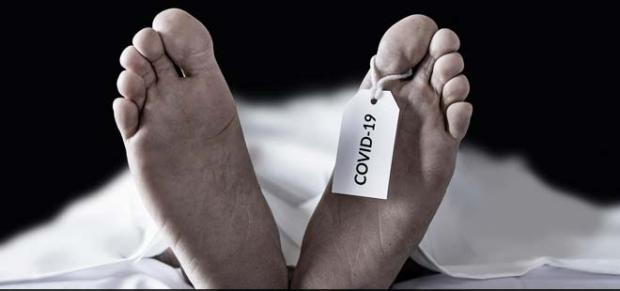COLOMBO – Sri Lanka recorded five more COVID-19 related fatalities on Tuesday (17), three of the deaths occurring at home, taking the country’s novel coronavirus death toll to 66. Sri Lanka’s COVID-19 tally also crossed the 18,000 mark with the confirmation of 401 new cases.
The Department of Government Information in a statement announcing the multiple deaths, identified the deceased as three females aged 69, 71 and 81 and two males aged 65 and 82. All are from Colombo and the immediate suburbs.
The statement said two of the females, the 69-year-old from Ratmalana and the 71-year-old from kirulapone had had died at home, and the cause of death were determined to be diabetes and high blood pressure complicated by COVID-19 infection. The third female, an 81-year-old from Colombo 2, had died at the National Hospital Colombo, with the cause of death determined to be COVID related pneumonia.
Of the two males, the 65-year-old from Colombo 10, diagnosed as COVID-19 positive had been admitted to the Punani treatment centre and subsequently transferred to the Welikanda Base Hospital where he had died. The cause of death was determined to be high blood pressure related complications due COVID-19 infection. Meanwhile, the second male, an 82-year-old from Dematagoda had died at home, and the cause of death was determined to be diabetes aggravated by COVID-19 infection.
The statement said Director General of Health Services, Dr. Asela Gunawardena, had confirmed all five deaths to be COVID-19 related, taking the COVID fatality count to 66.
Fifty two deaths have now been officially recorded since October 24, many of them at home and several on admission to the National Hospital Colombo, since the emergence of a new and more virulent strain of the virus in a new cluster in Minuwangoda, with the apparel factory in the area as the epicentre earlier in the month. Since then the cluster has seen sub-clusters in several parts of the country, with the largest case load reported from the Peliyagoda fish market. As of Tuesday, the Minuwangoda/Peliyagoda cluster had recorded 14,568 cases with 398 of the 401 cased testing positive for the virus during the course of the day, linked to the cluster.
According to the Department of Government Information daily update, Tuesday’s confirmations take Sri Lanka’s novel coronavirus count to 18,075 with 12,210 being deemed recovered and discharged under the new health ministry guidelines that don’t require multiple PCR tests, and 5,799 receiving treatment at various designated hospitals across the country.
In a related development, Colombo Mayor Rosy Senanayake on Monday (16) requested the government to lock down the country’s commercial capital for at least three weeks to deal with the pandemic.
Addressing a press briefing she urged the government to consult the Epidemiological Unit of the Department of Health and map out a strategy for Colombo.
“It is my proposal that we lock down the whole city and rigidly enforce guidelines to limit people moving about for at least three weeks,” Senanayake told reporters. However, highly placed sources said the government was not likely to pay heed to the mayor’s request, given the economic hit the capital was likely to suffer and the economic hardships that would be forced upon the people.
The mayor’s plea stems from the fact that Colombo city is badly hit by the virus with several thousand people being detected in the Colombo Municipal Council area as being positive.
The Colombo district has the highest density of COVID positive cases in the country and its Health Authorities have warned that 5% of the population, amounting to 30,000 people are likely to have contracted the virus in the city alone.
The National Task Force combating COVID-19 has placed 17 Police Divisions in the city under isolation.
Senanayake also called for more random in order to isolate and treat the confirmed cases, but said Colombo needed central government help as the City does not have the means nor the staff to carry out the testing
“We are currently testing only first and second tier contacts of infected people. That is not enough,” she said
-ENCL


